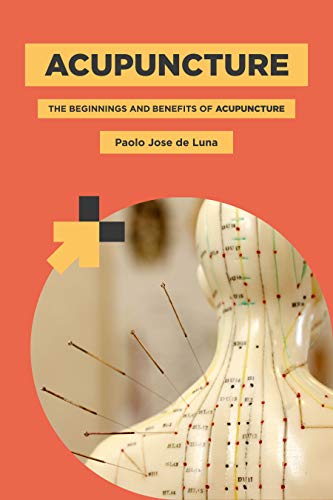Benefits of Acupuncture
Relief from Pain
One of the primary benefits of acupuncture is its ability to provide pain relief. By inserting thin needles into specific points in the body, acupuncture stimulates the release of endorphins, which are natural painkillers. This therapy is particularly effective in treating chronic pain conditions such as arthritis, migraines, and back pain.
Stress Reduction
In today’s fast-paced world, stress has become a common issue for many individuals. Acupuncture offers a natural and effective way to reduce stress levels. The treatment helps to regulate the production of stress hormones, such as cortisol and promotes relaxation. By targeting specific acupuncture points, it can also alleviate symptoms of anxiety and depression.
Improved Sleep Quality
Acupuncture has been shown to improve sleep quality in individuals suffering from insomnia or other sleep disorders. By promoting relaxation and balancing the body’s energy flow, acupuncture can help regulate sleep patterns and provide a more restful night’s sleep.
Boosted Immune System
Regular acupuncture sessions can strengthen the immune system, making you less susceptible to illnesses and infections. Acupuncture stimulates the production of white blood cells, which play a crucial role in fighting off pathogens and maintaining overall health.
Enhanced Digestion
If you struggle with digestive issues, acupuncture may offer relief. By targeting specific acupuncture points related to digestion, this therapy can help regulate stomach acid production, improve nutrient absorption, and alleviate symptoms of indigestion, bloating, and constipation.
Reduced Inflammation
Inflammation is a common underlying factor in many chronic diseases. Acupuncture has been found to have anti-inflammatory effects, helping to reduce inflammation throughout the body. This can be particularly beneficial for individuals with conditions such as arthritis, asthma, or inflammatory bowel disease.
Support for Women’s Health
Acupuncture is often used as a complementary therapy for various women’s health issues. It can help regulate menstrual cycles, alleviate symptoms of premenstrual syndrome (PMS), and provide relief from menopausal symptoms such as hot flashes and mood swings.

Acupuncture offers a wide range of benefits for both physical and mental well-being. From pain relief to stress reduction and improved sleep quality, this ancient therapy has proven its effectiveness time and time again. If you are considering acupuncture, it is important to consult with a qualified practitioner to ensure a safe and tailored treatment plan.
Frequently Asked Questions about Acupuncture
1. What is acupuncture?
Acupuncture is a traditional Chinese medicine technique that involves inserting thin needles into specific points on the body to stimulate energy flow and promote healing.
2. How does acupuncture work?
Acupuncture works by stimulating the body’s natural healing response and restoring balance to the flow of energy, known as Qi, throughout the body.
3. What conditions can acupuncture treat?
Acupuncture can be effective in treating a wide range of conditions including pain management, stress, anxiety, insomnia, digestive disorders, and even fertility issues.
4. Are there any side effects of acupuncture?
Acupuncture is generally considered safe when performed by a trained and licensed practitioner. Some people may experience minor bruising, soreness, or bleeding at the needle insertion sites, but serious side effects are rare.
5. How many acupuncture sessions do I need?
The number of acupuncture sessions required varies depending on the individual and the condition being treated. In general, a series of sessions is recommended for optimal results.
6. Does acupuncture hurt?
Most people experience minimal discomfort during acupuncture treatment. The needles used are very thin and often produce only a slight sensation upon insertion.
7. Is acupuncture covered by insurance?
Some insurance plans do cover acupuncture, but it depends on the specific policy. It’s best to check with your insurance provider to determine your coverage.
8. Can acupuncture be used alongside other medical treatments?
Yes, acupuncture can be used as a complementary therapy alongside other medical treatments. It is important to inform your healthcare provider about any other treatments you are undergoing.
9. How long does an acupuncture session last?
An acupuncture session typically lasts between 30 to 60 minutes. The duration may vary depending on the practitioner and the specific treatment plan.
10. How soon can I expect to see results from acupuncture?
Results from acupuncture can vary depending on the individual and the condition being treated. Some people may experience immediate relief, while others may require several sessions before noticing significant improvement.




